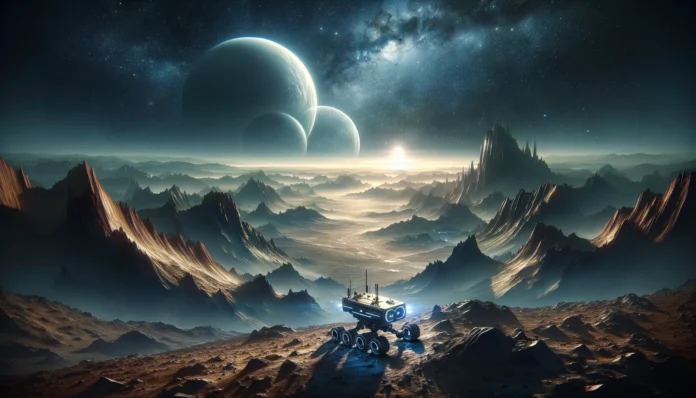In the vast expanse of the cosmos, humanity’s quest to explore the unknown has always been fueled by innovation and technology. As we set our sights on the stars, one technology stands out as a game-changer for future space missions: artificial intelligence (AI). From navigating distant galaxies to conducting groundbreaking research, AI is poised to revolutionize every aspect of space exploration.
Imagine a spacecraft hurtling through the depths of space, its journey guided not by human hands alone but by the intricate algorithms of AI. This is the future of space travel—a future where AI serves as our co-pilot, navigating the cosmos with unparalleled precision and efficiency.
At the heart of AI’s impact on space missions lies its ability to process vast amounts of data in real-time. In the harsh environment of space, where split-second decisions can mean the difference between success and failure, AI’s ability to analyze data and adapt to changing conditions is invaluable. Whether it’s avoiding space debris or navigating through asteroid fields, AI-equipped spacecraft can navigate with unparalleled accuracy, ensuring safe passage through the cosmos.
But AI’s role in space exploration goes beyond navigation. It also plays a crucial role in scientific discovery, helping researchers analyze complex data from distant planets, moons, and beyond. With AI algorithms capable of identifying patterns and anomalies in massive datasets, scientists can uncover hidden insights about the universe, from the composition of distant planets to the origins of cosmic phenomena.
Moreover, AI’s impact on future space missions extends to the realm of robotics. From autonomous rovers exploring the surface of Mars to self-repairing spacecraft, AI-driven robotics are transforming how we explore and interact with our celestial neighbors. These robotic explorers, equipped with AI algorithms, can traverse rugged terrain, collect samples, and conduct experiments with unprecedented precision and efficiency.
In addition to its practical applications, AI is also driving innovation in spacecraft design and propulsion systems. By optimizing fuel consumption and trajectory calculations, AI-powered spacecraft can travel farther and faster than ever before, opening up new frontiers in space exploration. Furthermore, AI algorithms can help mitigate the risks associated with long-duration space missions, from monitoring astronaut health to predicting and preventing equipment failures.
As we look to the future, the potential of AI in space exploration is limitless. From manned missions to Mars to unmanned probes venturing beyond our solar system, AI will play a pivotal role in shaping the next chapter of humanity’s journey into the cosmos. With continued advancements in AI technology, we can unlock new opportunities for scientific discovery, expand our understanding of the universe, and ultimately, fulfill our destiny as explorers of the cosmos.





